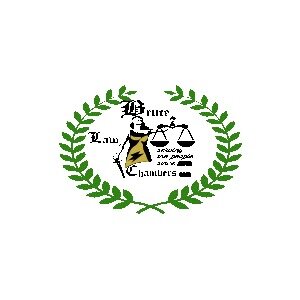Best Climate Change Law Lawyers in Saint Vincent and the Grenadines
Share your needs with us, get contacted by law firms.
Free. Takes 2 min.
Or refine your search by selecting a city:
List of the best lawyers in Saint Vincent and the Grenadines
About Climate Change Law in Saint Vincent and the Grenadines
Climate Change Law in Saint Vincent and the Grenadines refers to the collection of statutes, regulations, policies, and international commitments aimed at addressing the impacts of climate change within the country. As a small island developing state in the Caribbean, Saint Vincent and the Grenadines faces unique vulnerabilities such as rising sea levels, increased hurricane frequency, coastal erosion, and changing agricultural patterns. The government works to mitigate and adapt to climate change through national strategies, environmental protection legislation, and participation in global agreements like the Paris Agreement. Climate Change Law encompasses not only environmental regulations but also broader policy areas such as disaster risk management, land use planning, energy policy, and sustainable development.
Why You May Need a Lawyer
Individuals, businesses, and organizations may need legal assistance in matters related to Climate Change Law in several scenarios. Common situations include:
- Understanding compliance obligations for businesses under environmental and climate-related regulations
- Seeking permits or approvals for development projects that may impact the environment or coastal areas
- Engaging in land use or zoning disputes affected by climate-related risks
- Challenging government actions or inactions that contribute to environmental harm or do not fulfill climate obligations
- Protecting property or community rights in cases involving forced relocation, disaster risk, or loss due to climate change
- Accessing climate finance, incentives, or international support for adaptation and mitigation projects
- Participating in consultations on new laws or policies related to climate change
A lawyer with experience in Climate Change Law can help navigate complex regulations, advocate for your interests, and ensure compliance with both local and international legal standards.
Local Laws Overview
Saint Vincent and the Grenadines has developed a legal framework to respond to climate change challenges. Key aspects include:
- Environmental Protection Law: This includes regulations on pollution control, coastal zone management, and protection of natural habitats. The Environmental Health Services Act and related regulations address issues such as air and water quality, waste management, and the prevention of environmental hazards.
- Disaster Management: Laws such as the National Emergency and Disaster Management Act set out the roles of government agencies to plan for, respond to, and recover from natural disasters often intensified by climate change.
- Land Use and Development: The Physical Planning and Development Act regulates land development, including environmental impact assessments, to minimize risks from flooding, erosion, or other climate-related hazards.
- Energy Law and Policy: Saint Vincent and the Grenadines is working to increase renewable energy use and improve energy efficiency as part of its climate strategy, reflected in relevant energy regulations and initiatives.
- International Commitments: The country is party to major climate treaties such as the United Nations Framework Convention on Climate Change and the Paris Agreement. These commitments influence national policies and legal obligations.
The evolving legal landscape requires close attention to changes in legislation, policy, and international agreements.
Frequently Asked Questions
What is Climate Change Law?
Climate Change Law refers to regulations, policies, and legal principles that aim to prevent, mitigate, or adapt to the effects of climate change. It covers areas such as environmental protection, sustainable resource use, and compliance with international climate agreements.
Which government agencies oversee Climate Change Law in Saint Vincent and the Grenadines?
Main government bodies include the Ministry of Health, Wellness and the Environment and the National Emergency Management Organisation. These agencies work with other departments on policy, enforcement, and adaptation measures.
Are there specific laws dedicated solely to climate change?
While there may not be a stand-alone Climate Change Act, various laws and policies address climate-related issues, including disaster management, land use, environmental protection, and renewable energy development.
Can individuals or communities take legal action over environmental damage caused by climate change?
Yes, in some cases, individuals and communities can challenge actions or policies that harm the environment or do not adequately protect against climate risks, often through administrative remedies or litigation.
What role do international agreements play in local Climate Change Law?
International agreements such as the Paris Agreement create legal and policy obligations for Saint Vincent and the Grenadines to mitigate greenhouse gas emissions, adapt to climate impacts, and report progress. These agreements guide local law and policy making.
How are development projects regulated to prevent environmental harm?
Projects are generally subject to environmental impact assessments under the Physical Planning and Development Act. Approvals may include conditions to minimize environmental risks, particularly in sensitive areas like coastlines or forests.
Can businesses obtain incentives for engaging in climate-friendly practices?
Yes, there are initiatives and programs encouraging renewable energy adoption, energy efficiency, and sustainable practices, sometimes supported by government incentives or international climate finance.
What should I do if my property is at risk due to climate change?
Seek legal advice promptly. A lawyer can help assess your rights, negotiate with authorities, and explore options for compensation, relocation, or adaptation support.
Is climate change taken into account in disaster planning?
Yes, disaster risk reduction and management strategies explicitly include considerations of climate change impacts, particularly for hurricanes, flooding, and landslides.
How can I stay informed about changes in Climate Change Law?
You can monitor government websites, news updates, and legal bulletins. Engaging with local environmental NGOs and subscribing to updates from relevant ministries or organizations is also recommended.
Additional Resources
For further information and support related to Climate Change Law in Saint Vincent and the Grenadines, consider these resources:
- Ministry of Health, Wellness and the Environment - for climate policies, environmental regulations, and international reports
- National Emergency Management Organisation (NEMO) - for disaster preparedness, response guidelines, and risk reduction strategies
- Physical Planning Unit - for information on land use, planning permits, and environmental assessments
- Environmental NGOs such as the Saint Vincent and the Grenadines Environment Fund - for community initiatives and advocacy
- Chamber of Commerce or business associations - for guidance on business compliance and incentives
Next Steps
If you believe you need legal advice or representation related to Climate Change Law in Saint Vincent and the Grenadines, consider the following actions:
- Gather relevant documents such as permits, correspondence, photographs, or reports related to your concern
- Identify your key objectives and questions to clarify your needs during legal consultations
- Contact a qualified attorney with experience in environmental or climate law for an initial consultation
- Consult relevant government departments for additional information or to clarify regulatory requirements
- Stay engaged with community organizations or advocacy groups if your issue affects a broader area or group
Timely legal advice can help protect your interests, ensure compliance, and contribute to effective climate change response in Saint Vincent and the Grenadines.
Lawzana helps you find the best lawyers and law firms in Saint Vincent and the Grenadines through a curated and pre-screened list of qualified legal professionals. Our platform offers rankings and detailed profiles of attorneys and law firms, allowing you to compare based on practice areas, including Climate Change Law, experience, and client feedback.
Each profile includes a description of the firm's areas of practice, client reviews, team members and partners, year of establishment, spoken languages, office locations, contact information, social media presence, and any published articles or resources. Most firms on our platform speak English and are experienced in both local and international legal matters.
Get a quote from top-rated law firms in Saint Vincent and the Grenadines — quickly, securely, and without unnecessary hassle.
Disclaimer:
The information provided on this page is for general informational purposes only and does not constitute legal advice. While we strive to ensure the accuracy and relevance of the content, legal information may change over time, and interpretations of the law can vary. You should always consult with a qualified legal professional for advice specific to your situation.
We disclaim all liability for actions taken or not taken based on the content of this page. If you believe any information is incorrect or outdated, please contact us, and we will review and update it where appropriate.
Browse climate change law law firms by city in Saint Vincent and the Grenadines
Refine your search by selecting a city.











